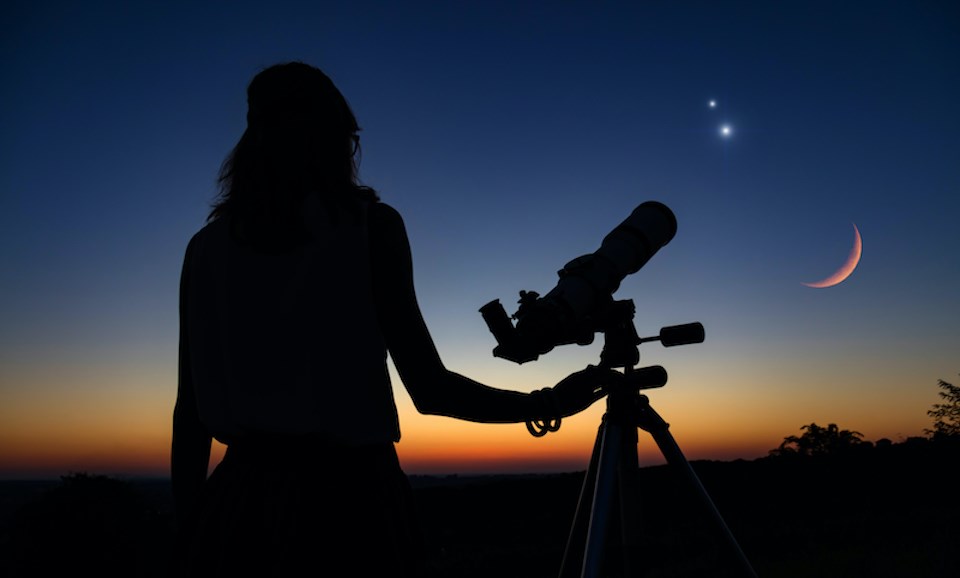Metro Â鶹´«Ã½Ó³»stargazers may have the chance to view a rare celestial event as two planets appear to share a smooch overhead.
While Jupiter and Venus won't actually "kiss," the heavenly bodies will come "very close together in what is called a conjunction," according to Marley Leacock, an astronomer at the .
"To our eyes, the distance between the two will appear to be the same as the distance across the Full Moon. It might look like they're overlapping. In reality, they're still really far apart," she tells V.I.A. in an email.
Jupiter and Venus — the two brightest planets in our solar system — will (March 1), when they are only "about half a degree apart," according to NASA.
"You'll want to look in the Western sky after sunset," said Leacock. "Being two of the brightest objects in our nighttime sky, they'll be easy to spot.
"If you have binoculars, you'll be able to see them together. With a telescope, the view will be even better."
In addition to being the two brightest planets, Jupiter is also the largest and Venus is the hottest.
"Surface temperatures on Venus get as hot as around 475 C, which is sufficient to melt lead," according to Space.com.
When can you expect to see another Venus-Jupiter conjunction?
After roughly 24 years, the two heavenly bodies will come together in , meaning the next time you'll be able to see the bright pair enjoy a sky smooch won't be until March 8, 2047.
For now, the Metro Â鶹´«Ã½Ó³»weather forecast includes periods of rain and even the possibility of snowfall. However, if there are some breaks in the cloud coverage you might be able to steal a peak at the rare celestial meeting.



